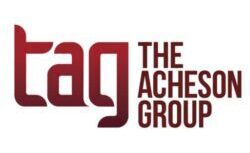FDA has been very much focused on manufacturers, processors, growers and importers in recent years. But, is the retail and foodservice space the next regulatory frontier for FDA to turn its regulatory attention toward? There are clearly signals from FDA that is what they are thinking. Just before the Christmas break, FDA released a supplement to the 2017 Food Code. Intended to enable changes to the Food Code without having to rewrite and reissue the entire document, the supplement includes several changes for which there was substantial concurrence from FDA and other stakeholders. The next full rewriting of the Food Code will occur in 2021. And from a look at other previous FDA announcements, we can expect it to have some significant updates, particularly related to the agency’s New Era of Smarter Food Safety approach. Intending to release it New Era blueprint this year, outlining critical steps to protect public health and keep pace with the ever-changing global food supply chain, FDA held a public meeting in October 2019 to hear from a broad cross-section of stakeholders on the new approach. Just prior to that, the agency published a “Food for Thought” document in which it listed some of its brainstorming ideas on how to begin the New Era. Within the section “New Business Models and Retail Modernization,” FDA included two ideas for Food Code additions including: Develop Approaches to Help Ensure the Safety of E-Commerce: Add section to Food Code or issue guidance for industry regarding handling, packaging, transportation, particularly focused on mail-order meal kits. Enhance Traditional Retail Food Safety: Expand the Food Code to require industry food safety management systems for retail establishments. These two points jumped out at me and my interpretation of them is to expect tighter controls on e-commerce and the delivery models that are so prevalent today. In the second point, the FDA is signaling that the agency will“require” Food Code compliance. Whether or not these changes are made to the Food Code, we can certainly expect that they will be further discussed by FDA, and potentially issued in guidance if not in the 2021 Food Code. Meanwhile, the Food Code Supplement that FDA issued includes the following modifications: Allow food establishments in limited circumstances (e.g., restricted office building or break room), that pose minimal risk of causing, or contributing to foodborne illness to operate without a person in charge, as approved by the regulatory authority. Add a new exception for when “time without temperature control” is used as the public health control for ready-to-eat produce and hermetically sealed food upon cutting, chopping or opening of the hermetically sealed container. This exception allows these foods to begin at 70°F or less and remain at 70°F for a maximum of 4 hours. Remove the allowance for use of chemically treated towelettes for hand washing because the means to wash hands in limited situations is readily available and hand washing has been determined to be effective. Expand and clarify the type of information that should be included when a HACCP Plan is required by a regulatory authority. Include new supporting documents. The supplement included various other corrective edits and less expansive additions and deletions, all of which can be seen on the Summary of Changes in the FDA Food Code 2017, which provides a synopsis of the textual changes from the 2013 FDA Food Code and the Supplement to the 2013 Food Code Chapters and Annexes to the 2017 edition, or in the full Supplement – which FDA advises facilities to download and keep on hand as it is intended to keep the 2017 Food Code up-to-date. The 2021 Food Code will be the first full update in four years. From 1993 through 2001, the complete Food Code was issued every two years. With the support of the CFP, FDA currently issues a new Food Code every four years. But it may be time for some more radical changes around the regulation of retail and foodservice food safety. About The Acheson Group (TAG): Led by Former FDA Associate Commissioner for Foods Dr. David Acheson, TAG is a food safety consulting group that provides guidance and expertise worldwide for companies throughout the food supply chain. With in-depth industry knowledge combined with real-world experience, TAG’s team of food safety experts help companies more effectively mitigate risk, improve operational efficiencies, and ensure regulatory and standards compliance. www.AchesonGroup.com





